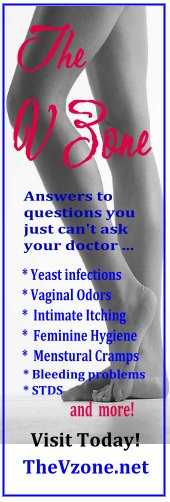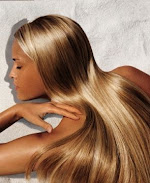New research shows that a popular herb can impact the area of the brain involved in hot flashes; but there are also new cautions it may cause liver toxicity – by Colette Bouchez
 For the millions of hot flashing baby boomers the news is both good and bad.
For the millions of hot flashing baby boomers the news is both good and bad.
The good: The Columbia University School of Nursing inNew York City
The bad: The study is released on the heels of a US Pharmacopoeia advisory linking the use of black cohosh to liver toxicity.
An editorial published recently in the journal Menopause is indicative of the confusing status of black cohosh, even among medical professionals.
“We must also be willing to state without shame that there is much we do not know about black cohosh . . . and the treatment of vasomotor symptoms,” wrote the editorialist.
The new research, conducted by Columbia’s Dr. Reame and her colleagues atthe University of Michigan
And there in might lie its success as a hot flash treatment.
“ Black cohosh increased opioid receptor availability in brain areas where
estrogen effects in the same direction have been previously observed,” says Reame, whose study was published this month in the journal Menopause, a publication of the North American Menopause Society.
Although there have already been dozens of studies on black cohosh showing it can reduce hot flashes in some women, Reame says this is the first time researchers have actually demonstrated it has precise affects within the brain itself.
While no one is completely certain about what causes a hot flash, many believe it is related to snafus in the hypothalamus gland – the area of the brain that helps control core body temperature.
 For the millions of hot flashing baby boomers the news is both good and bad.
For the millions of hot flashing baby boomers the news is both good and bad.The good: The Columbia University School of Nursing in
The bad: The study is released on the heels of a US Pharmacopoeia advisory linking the use of black cohosh to liver toxicity.
An editorial published recently in the journal Menopause is indicative of the confusing status of black cohosh, even among medical professionals.
“We must also be willing to state without shame that there is much we do not know about black cohosh . . . and the treatment of vasomotor symptoms,” wrote the editorialist.
The new research, conducted by Columbia’s Dr. Reame and her colleagues at
And there in might lie its success as a hot flash treatment.
“ Black cohosh increased opioid receptor availability in brain areas where
estrogen effects in the same direction have been previously observed,” says Reame, whose study was published this month in the journal Menopause, a publication of the North American Menopause Society.
Although there have already been dozens of studies on black cohosh showing it can reduce hot flashes in some women, Reame says this is the first time researchers have actually demonstrated it has precise affects within the brain itself.
While no one is completely certain about what causes a hot flash, many believe it is related to snafus in the hypothalamus gland – the area of the brain that helps control core body temperature.
When estrogen levels drop or fluctuate – as they do in the years directly preceding - and following - menopause, the hypothalamus gets an erroneous signal that the body is hot and needs to cool down. It is that “mixed signal” which then causes blood vessels to dilate so the excess heat can escape.
It is that sudden and rapid release of body heat that causes the warm flushed feeling we know as a “hot flash”.
How The Study Was Done
The trial, involved six women all of whom met the clinical definition of “menopause’. They had not used any hormone treatments for at least six months and all reported having hot flashes and night sweats.
At the start of the study each woman underwent both sleep tests and brain-imaging PET scans, documenting various neurological activities related to hot flashes and night sweats. This was followed by 12 weeks of 40mg a day dosing of oral black cohosh supplements, after which the tests were repeated.
The results: “Although these data cannot be extrapolated to other study populations, the results obtained are nevertheless suggestive of neurobiological effects of black cohosh affecting systems relevant to the pathophysiology of hot flashes,” says Reame.
The Black Cohosh Controversy
An essential part of the black cohosh compound is believed to be a substance known as “triterpene,” a natural chemical that some research shows may have estrogen-like effects. For the past 40 years, black cohosh has been a mainstay in the European community for the treatment of hot flashes. The German E- Commission ( their equivalent of the FDA) approves the supplement for this purpose and reports that currently more than 1.5 million women have successfully used it to treat menopause symptoms.
And while studies on thousands of women show it can be effective, other research has shown it may have little or even no effect over and above a placebo.
But Reames' study suggests – and many experts believe – the differences may be due, in large part, to the brand of black cohosh supplement used in some of the trials. Since black cohosh is a food supplement, it is not subject to the same kind of FDA scrutiny as a drug. And that means the level of effective ingredients can change dramatically from brand-to-brand, or even within a brand itself.
To date, nearly all of the black cohosh clinical trials that have yielded positive results – including Reames’ study – used the brand name black cohosh supplement known as Remifemin. This is a German made black cohosh supplement that is not only “standardized” to contain a consistent level of ingredients, those ingredients are reportedly present in levels that studies show are necessary to achieve results.
That said, recent reports of liver toxicity – including 1 death - occurring in about 30 women using a variety of black cohosh supplements has prompted the US Pharmacopoeia (a nongovernmental organization that sets standards for food ingredients and dietary supplements) to publish it’s intent to require all black cohosh products sold in the US to carry a warning label.
In response, the American Botanical Council (ABC) filed comments stating that case reports linking black cohosh to liver toxicity are largely unsubstantiated, and that the standards used by the USP were not adequate to properly access safety.
In 2006 the Australia's Therapeutics Goods Administration (TGA), which regulates that country’s dietary supplement market, required all products containing black cohosh to carry a label warning about liver toxicity, a decision they say was based on review of 47 cases of related liver toxicity worldwide.
The US Pharmacopoeia's’s decision about supplements sold in the US is expected before the end of the year.
In the meantime, if you have any liver related problems, including hepatitis C, or a possibility of having undiagnosed hepatitis C, talk to your doctor before taking any black cohosh supplements.
You might also enjoy reading:
The Hot Flash Solution: Safe, natural ways to take control of hot flashes and night sweats.
The Hot Flash Solution: Safe, natural ways to take control of hot flashes and night sweats.




































No comments:
Post a Comment